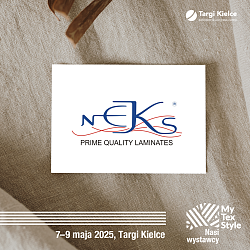News

Hemp Renaissance – a Chance for an Ecological Future or a Fad?
Hemp fibres, known and used for centuries, are now experiencing a real renaissance, especially in the face of the search for alternatives to synthetic materials and non-renewable resources. Durability, ecological properties, and wide use in the production of textiles, construction materials, and packaging favour the return to hemp . At the same time, however, the sector is facing challenges that may determine its further development or stagnation. Experts identify several main problems: costs, lack of specialised staff and low public awareness.
The situation has deteriorated due to the crisis in the textile industry's supply, which has been dependent on synthetic fibres derived from oil for years. Hemp fibres, due to their resistance and ecological values, seem to be the ideal alternative. Hemp cultivation requires less water and minimal fertilisers and pesticides, and these plants have a high capacity to absorb carbon dioxide. However, Poland still lacks sufficient infrastructure to allow for large-scale processing of hemp.
Legislative support, especially the adoption of regulations supporting hemp processing, especially the processing of fibres into fabrics and construction materials, could attract investment and develop local processing infrastructure, significantly increasing the availability of hemp products. Supporting this sector development would undoubtedly contribute to the entry of hemp fabric producers into a wider market and would have a tangible impact reducing the consumption of non-renewable raw materials.
The hemp fibre industry then and now
Hemp has been cultivated and its fibres used for centuries in many different countries of the world. The countries most focused on hemp are
- China – the largest hemp producer in the world. They have a long history of using hemp fibre to produce textile products;
- India – a rich tradition of using fibre to produce items such as clothes and ropes;
- Canada – one of the main producers of hemp with hemp industry thriving and mainly focussed on the textile sector;
Other countries that have also developed a cannabis industry include Ukraine, France, the USA and Italy. Hemp fibres were produced and processed all over the world until around the 1930s. The 1990s saw the demonisation of hemp and the introduction of bans on its cultivation and use.
Today, there are only a few companies in Poland that produce hemp fabrics with the largest of them - Kombinat Konopny which owns as many as 40 hectares of fields and machines of our own design. One of the Kombinat Konopny goals is to make CBD oils and other natural hemp-based supplements affordable for as wide a group of people as possible. The company's offer includes products such as CBD oils with a full spectrum of phytosubstances, cannabidiol in the form of capsules or teas, cosmetics, healthy hemp food, and animal supplements. The company’s other business profile is the textile sector. The objective - natural hemp-based materials should be brought back into the mainstream of the broadly defined textile and fiber industry in Poland and worldwide. Countless trials and experiments, which often required connecting several machines from completely different worlds, the creators of the Kombinat Konopny have reached the stage where they can create hemp yarn, which is then used to create finished textiles – sweaters, hats, curtains and many others.
You can become familiar with the Kombinat Konopny offer at the International Expo of Textile Machines, Materials and Accessories My TexStyle. The event is held from 7 to 9 May in Targi Kielce.
Do you want to become on of the exhibitors? Register for My TexStyle: https://www.targikielce.pl/my-texstyle/wystawca/zostan-wystawca








